April 29, 2024 | 22:21 GMT +7
April 29, 2024 | 22:21 GMT +7
Hotline: 0913.378.918
April 29, 2024 | 22:21 GMT +7
Hotline: 0913.378.918
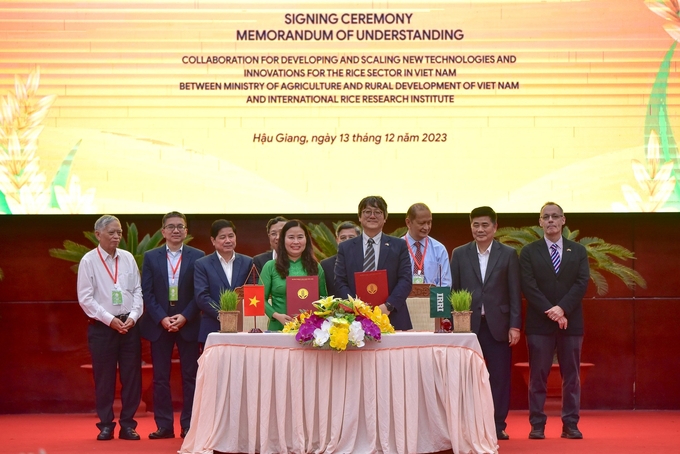
Department of Science, Technology and Environment (MARD) signed a Memorandum of Understanding (MoU) on collaboration for developing and scaling new technologies and innovations for the rice sector in Vietnam. Photo: Tung Dinh.
On December 13, Department of Science, Technology and Environment (MARD) signed a Memorandum of Understanding (MoU) on collaboration for developing and scaling new technologies and innovations for the rice sector in Vietnam.
As per the MoU, MARD and IRRI will orient to and strengthen further coopreation between rice scientists of Vietnam and IRRI. The MoU takes effect as of now until 2030. The signing ceremony transpired at the Interntational Workshop on Science, Technology and Innovation in Rice within the International Festival of Vietnam Rice Industry – Hau Giang 2023.
Both parties are committed to prioritizing the promotion and creation of conditions for the development and expansion of new technology and innovative advancements in six areas. Firstly, concerning the development of new rice varieties suitable for various conditions and ecosystems, the parties will exchange rice gene sources and permitted breeding materials. Emphasis will be placed on rice varieties that adapt to climate change (resistant to diseases; salt-tolerant, drought-tolerant, flood-resistant) and minimize the impact of climate change (reduce greenhouse gas emissions). This includes the smart rice market and rice varieties with low Glycemic Index (GI) and high nutritional value.
Secondly, both parties will develop technology in a sustainable direction, focusing on the low-carbon rice value chain, marketing, and policy support. This includes concentrating on the development of improved low-carbon and sustainable rice value chains, especially those targeting export markets, to adhere to international sustainability standards related to climate change mitigation. Efforts will be made to enhance source traceability at the farm and farmer levels. Guidance will be provided for low-carbon conversion and the establishment of low-carbon branding systems.
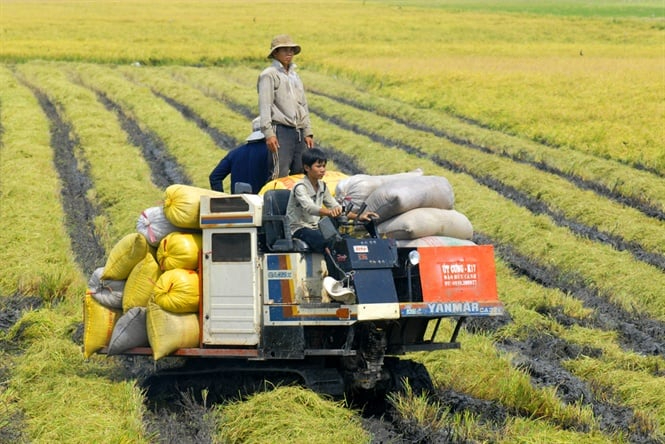
Thirdly, both parties will collaborate in precision agriculture and digital farming to adapt to climate change, improve sustainability, and reduce emissions. This involves planning for climate-smart adaptation, monitoring and climate alert systems, prioritizing agricultural areas in a changing environment. Additionally, the construction of a Geographic Information System (GIS), remote sensing, and crop management using unmanned aerial vehicles for precise seeding will be developed.
Fourthly, concerning the improvement of crop by-products management and circular economy, enhancing the value chain based on straw, aiming for low emissions and high income, and innovating in straw-related aspects to support the circular economy...
Fifthly, regarding carbon footprint and the development of Monitoring, Reporting, and Verification (MRV) systems/frameworks, including the development of MRV frameworks and tools for rice, covering monitoring and reporting on water management, fertilizers, and by-products, verification based on remote sensing, and digital tools for determining facility emissions or reference levels.
Lastly, the focus is on supporting capacity development and advisory services, cultivating scientific human resources for rice, agricultural experts, and exemplary farmers. Capacity enhancement for state management agencies, cooperatives, and businesses participating in the development of new technologies and solutions will be prioritized.
The implementation of the outlined priorities in the six areas will be carried out through bilateral and multilateral projects, CGIAR initiatives, and programs of the Government of Vietnam, including the "Sustainable Development of 1 Million Hectares of High-Quality Rice Cultivation with Low Emissions Linked to Green Growth in the Mekong Delta" project.
Rice is the daily staple for over 3.5 billion people, more than half of the global population and the majority of the world’s poor. Challenges such as increasing populations, dwindling natural resources, and the adverse effects of climate change are threatening the world’s rice supply and leading to food and nutrition insecurity.
The International Rice Research Institute (IRRI) is the world’s premier research organization dedicated to reducing poverty, hunger, and malnutrition through rice science. We aim to improve the health and welfare of those who depend on rice-based agri-food systems, and promote and protect the environmental sustainability of rice farming for future generations.
Vietnam and IRRI has been collaborating since 1963, when it received the first Vietnamese scientist to visit and study at the Institute.
Through IRRI and Vietnam partnerships, Vietnamese farmers are now able to maximize the full potential of the high-yielding rice varieties being grown in the Mekong and Red River Deltas. Vietnam placed high value on their collaboration with IRRI. From their initial areas of collaboration, Vietnam and IRRI are expanding their partnership to include rice production in the upland ecosystem, environmental issues, and grain quality.
Translated by Dieu Linh
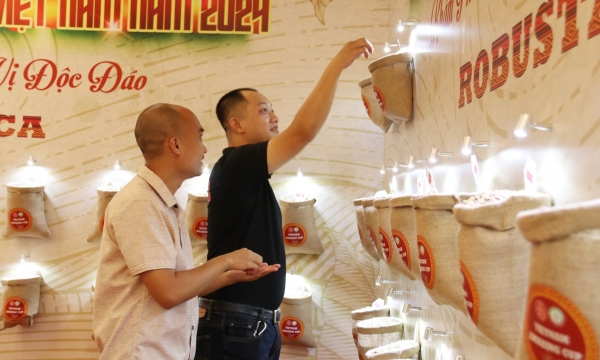
(VAN) The 2024 Vietnam Specialty Coffee Competition has chosen 129 samples that fulfill the requirement. Robusta coffee contributes for 83 samples, whereas arabica coffee accounts for 46.
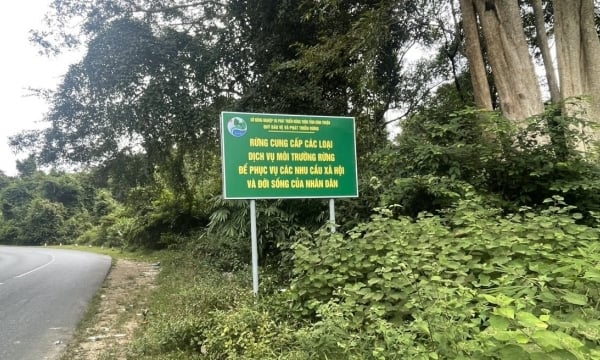
(VAN) The Binh Thuan Forest Protection and Development Fund is prepared to enhance surplus value of forests by entering the carbon market and providing forestry environmental services.
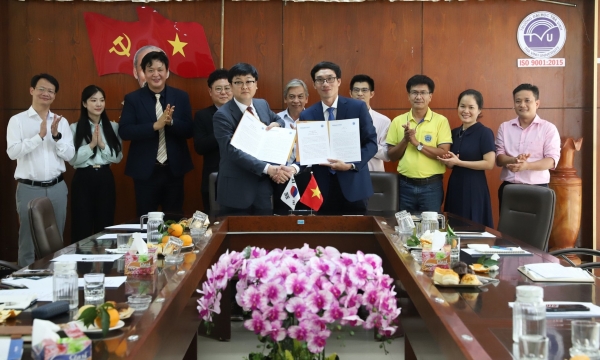
(VAN) On April 27, Tra Vinh University and Aquaworks Group from South Korea conducted an exchange and signed an agreement of scientific collaboration, focusing on research and develop advanced technologies for clean water.
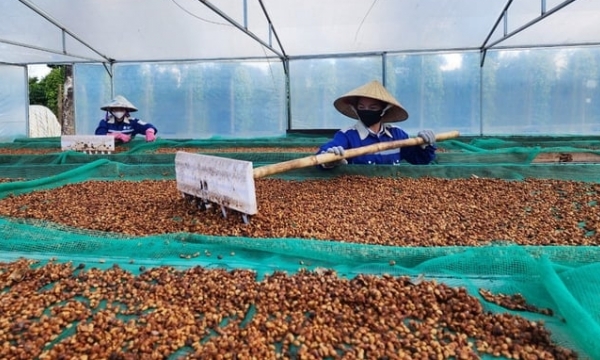
(VAN) Over 2 years (2022-2023), the total import-export turnover of the Central Highlands reached $ 4.6 billion, less than 1% of the import-export turnover.
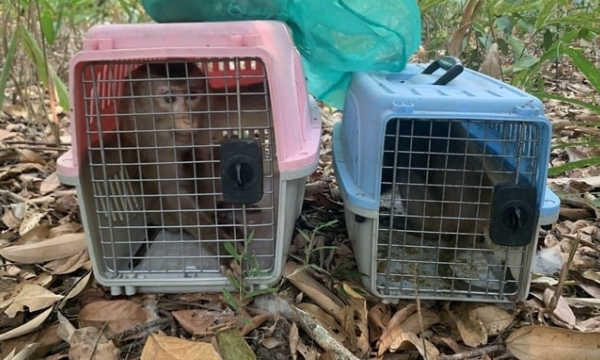
(VAN) After local residents voluntarily transfer them, the 3 pig-tailed macaques are cared for and in good health before being released back into the wild.
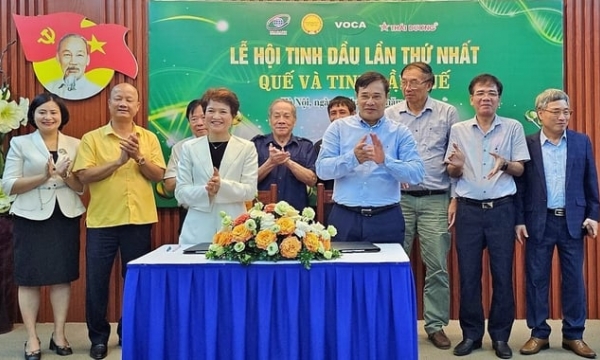
(VAN) Shortage of skilled and specialized human resources, incomplete production processes, and lack of methods to access the global market are common difficulties of the cinnamon industry.
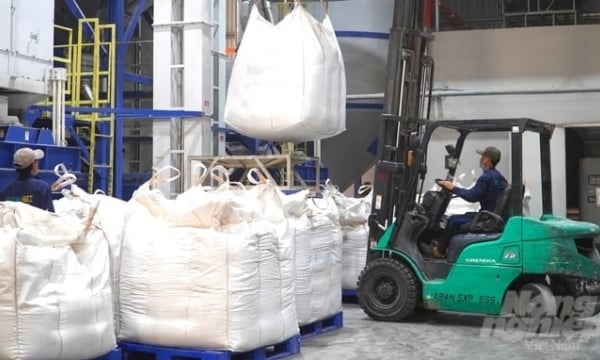
(VAN) In anticipation of a global shortage in rice supply, Vietnam is determined to restructure, enhance value, fulfill domestic consumption needs, and maintain a rice export volume of 7.4 million tons in 2024.